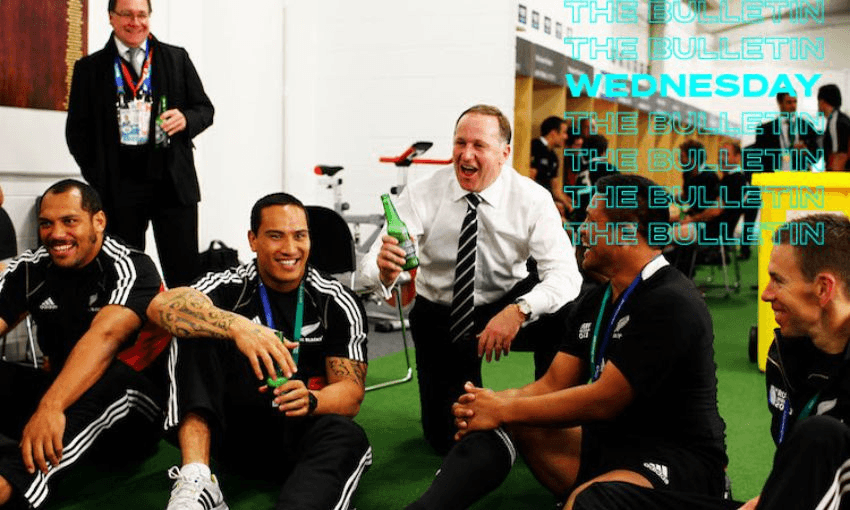Labour MP Arena Williams will receive a petition today urging MPs to pass Chlöe Swarbrick’s Alcohol Harm Reduction bill. Swarbrick needs Labour support to make that a reality, writes Anna Rawhiti-Connell in The Bulletin.
Alcohol Harm Reduction bill supporters call on parliament today
Beer and rugby. So synonymous that we have a whole catalogue of former prime minister John Key enjoying a cold one in the changing rooms with the All Blacks. Chlöe Swarbrick wants to change that with her Alcohol Harm Reduction bill. A 6000-signature petition will be presented to parliament today, urging MPs to pass the bill. The bill calls for a phasing out of alcohol advertising and sponsorship for broadcast sports, and the abolition of appeals on councils’ local alcohol policies. The Herald’s Issac Davison (paywalled) has an excellent rundown on the bill and reports that its success will rely on support from Labour MPs. It’s a conscience vote. Labour MP Arena Williams will accept the petition today.
Te Whatu Ora chair supports the bill
It has the backing of a number of councils, public health, community groups and Te Whatu Ora (Health NZ) chair Rob Campbell. He defended his right to have a personal view on it, despite his official role and despite another public health official getting a “please explain” from health minister Andrew Little for his support of it. Sports minister Grant Robertson has said he will vote against the bill. He’s supportive of the proposal to strengthen local alcohol policies, but is concerned the law change could cut off funding for sports groups without a clear plan for how that funding would be replaced. Swarbrick has argued that the “cut off” would be phased and has offered some possible ways to plug the gap.
Swarbrick argues alcohol sponsorship not the lifeline you might think
Robertson’s concern about cutting off funding has echoes of comments from then-justice minister Amy Adams in 2014. That was in response to a report from a panel chaired by Sir Graham Lowe who made recommendations on banning alcohol sponsorship in sport then. Advocates for the bill might say that there has been ample time to consider how any funding gap would be filled. The last estimate of the value of alcohol sponsorship in sports was around $20m. Swarbrick presented evidence in August that alcohol sponsorship is not the lifeline for grassroots teams that we might think it is. The figures used only reflect the value of what the alcohol industry puts into sport rather than what they get out of sports sponsorship. A study last year found people were subjected to 754 alcohol advertisements during a single rugby game. It’s a fair amount of exposure to audiences young and old that could go by the wayside.
Lotto funding of sport up for review
Robertson’s comments make an interesting contrast to Jan Tinetti’s recent comments about the profits from another source of funding for sport, Lotto. Tinetti is the minister for internal affairs and in Guyon Espiner’s recent series about Lotto, Tinetti said she was considering cutting the link between gambling and charity. “I’m not saying that that’s a fait accompli, but that would be one option,” she told RNZ. Last year, Sport NZ got 40% of its funding from Lotto profits, just over $26m in 2020/2021. It does look as if it’s possible to plan for filling one fairly large funding gap if it’s cut off, which might beg the questions as to why it can’t, or hasn’t been done, for another. France has had the loi Évin, a ban on alcohol advertising on television and in cinemas, since 1991. The Heineken Cup is known as the H Cup in France.


